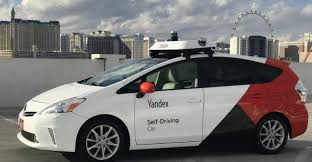Russia-based organization, Yandex, is stepping into the business of lidar sensor. It also specializes in transportation services and internet-related products. The organization recently confirmed that its autonomous cars have successfully covered in combined more than 1.5 million miles; this is 1 million more than it was in October. Yandex explained 2 custom lidar sensors that are software-designed and said it was testing it in Moscow on vehicles. Yandex anticipates it will likewise in the long run use them on its delivery robot, namely, Yandex.Rover.
The distance to target objects is measured by lidar sensors by illuminating them with laser light. Further the reflected pulses are measured. They are the important part of various driverless vehicle systems; these also include the ones by Uber, Waymo (by Alphabet), and Cruise (by GM), along with their applications stretched out to verticals such as industry, robotics, agricultural sectors, and security.
As per Yandex, its S/W can tune the scanning patterns of lidars while driving, with alterable parameters that allow them to adjust to different driving conditions such as thick dense city streets, freeways, as well as severe weather. The sensors can aim on a particular object to decide if it is a bike, pedestrian, or something different at a distance of around 200 meters. This is similar range as that of lidar sensors from Innoviz, Ouster, TetraVue, and Baraja; however, it is short of 250 meters of Luminar’s and 300 meters of Aeva’s.
Sensors by Yandex are likewise generally not expensive. The company’s head of self-driving cars, Yandex Dmitry Polishchuk, said that once the lidar sensors get into mass manufacturing, Yandex will be able to save around 75% on the materials’ bill. The 3rd party lidars filter and analyze data when it is gathered.
